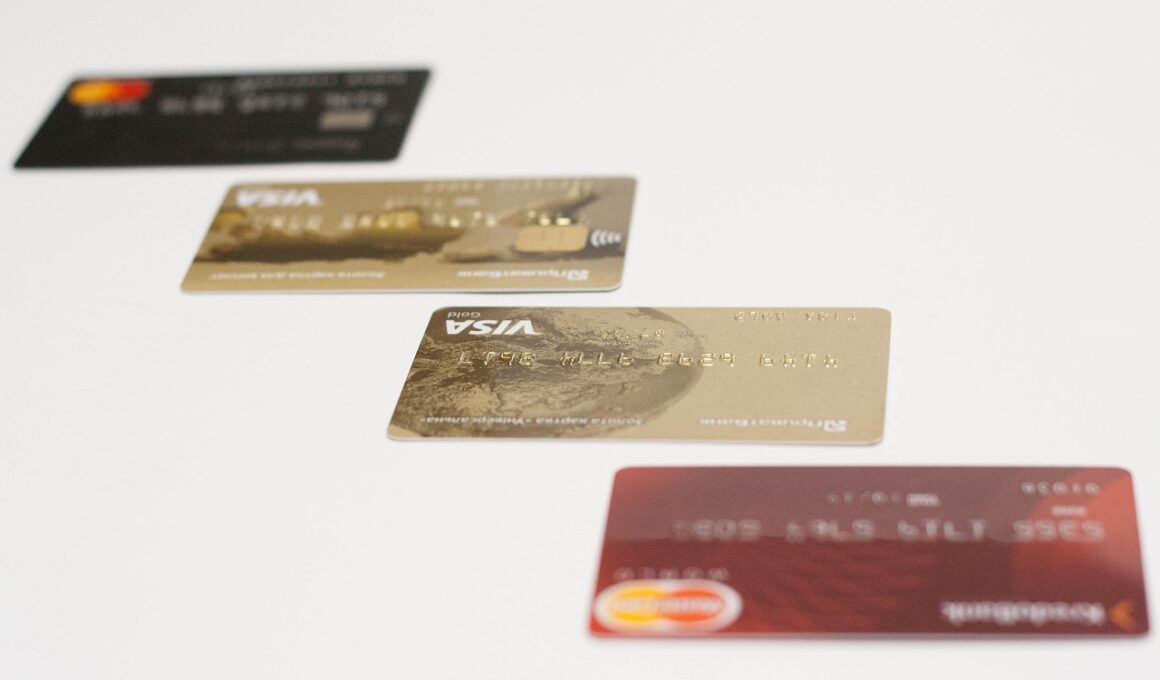The Role of Mental Accounting in Credit Card Usage
Mental accounting is a concept in behavioral economics that analyzes how consumers categorize, perceive, and value money. Understanding this concept is crucial when examining credit card usage, as it profoundly impacts consumer spending behavior. Consumers often create mental
accounts to differentiate between sources and purposes of money. For example, individuals may treat money from a bonus differently than their regular income. This differentiation can significantly affect how someone will use credit cards. Many consumers have dedicated categories for their spending, such as entertainment or necessities, which often leads to irrational spending patterns. If one is more comfortable using credit for perceived non-essential items, they may be inclined to overspend in that area. Consumers often misprice the emotional experiences attached to spending, leading them to believe that a purchase made on credit does not impact overall financial health. This attitude contributes to a disconnect in budgeting, allowing them to neglect overall credit card debt accruement. Therefore, it’s essential for consumers to be aware of their spending in relation to their mental accounts. Mindful understanding of how mental accounting influences credit usage can encourage more responsible spending practices and lead to healthier financial behavior and ultimately, financial freedom.
Credit Cards and Mental Budgeting
Credit cards often distort mental budgeting processes. Consumers might allocate funds for necessary expenditures yet fail to account for credit card payments. This inconsistency may lead to overspending and increasing debt. Since credit is viewed as more flexible than cash, individuals tend to perceive it as
an extension of their budget rather than a loan that needs repayment. This perspective impacts their overall financial planning and management. Thus, individuals may feel justified in their spending habits on credit cards, believing they are simply borrowing from their future income. Many credit card issuers use this psychological aspect strategically by promoting enticing offers like cash back or rewards points that encourage consumers to spend more. As individuals rely heavily on credit, they often overlook the cost of interest and potential fees involved, further complicating their financial situation. Mental budgeting should ideally lead people to allocate their resources effectively, but it can be disrupted when relying on credit. Understanding this disconnect can foster more responsible spending habits while considering the mental accounting framework consumers inherently use. Better financial literacy surrounding credit utilization creates a healthier relationship with money and ultimately leads to wiser spending habits that promote greater overall financial wellness.
Impulse Purchases and Credit Cards
Mental accounting plays a vital role in impulse purchases made with credit cards. The ease of swiping a card changes the perception of money spent. Immediate gratification is often prioritized over long-term financial thinking. The credit card may lead consumers to feel as if they are not spending
real money when making spontaneous purchases. This thinking can dangerously encourage consumers to abandon their budgets while emphasizing the significance of understanding mental accounting principles. As consumers fail to consider how debts accumulate, they may unknowingly enter a cycle of continuous spending. Moreover, they might rationalize these purchases by categorizing them as minor or inconsequential, believing they won’t impact their overall financial situation. Hence, exploring the impulse purchase psychology is vital. Retail environments, including strategies such as in-store promotions, also exploit this vulnerability, encouraging consumers to buy on credit without fully understanding the implications. Consequently, consumers must be aware of this behavior to make sound financial decisions that align with their long-term goals. Awareness of mental accounting and recognizing impulsive tendencies when using credit cards can help establish boundaries around spending, leading to more prudent purchasing patterns over time.
The Impact of Rewards Programs
Rewards programs are prevalent in credit card usage, often tied to mental accounting principles. Consumers allocate specific spending categories for their credit card use, believing that they are maximizing benefits while minimizing expenditures. However, this mindset can lead to spending more than necessary just to earn rewards. This is markedly evident
when consumers gravitate towards credit cards that offer points or cash back, often irrationally neglecting the interest accrued and fees involved. The mental accounting involved in rewarding systems can lead consumers to make decisions focused solely on maximizing rewards rather than evaluating their overall financial health. Furthermore, consumers may create artificial targets, allowing them to justify expenses based on these goals, thus neglecting broader financial implications. As they prioritize accumulating rewards over necessity spending, the tendency to overspend through credit cards exacerbates potential debt issues. Effectively, adhering too closely to mental accounting strategies focused on reward maximization can kludge financial management practices. Understanding this interaction can illuminate the methods consumers employ when using credit and help foster healthier spending habits. Enhancing awareness surrounding spending and debt accumulation is essential for creating better financial outcomes over time.





